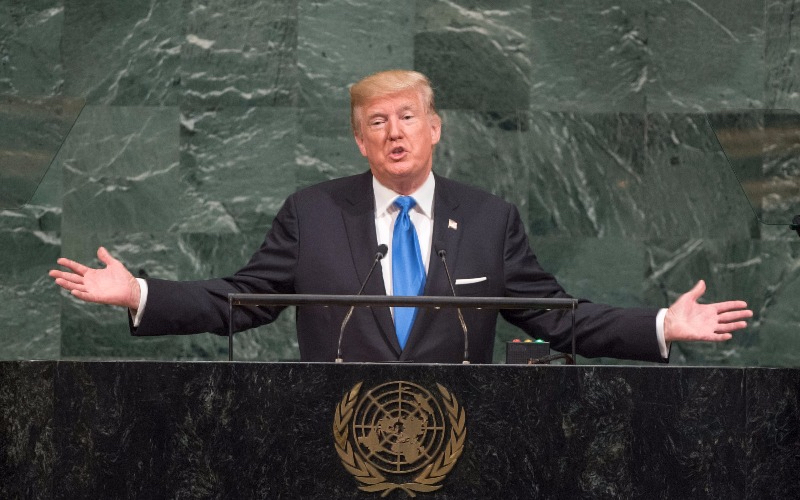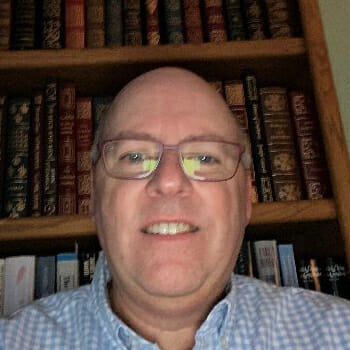
How Did Trump Handle His First UN General Assembly?
As world leaders descended upon New York City last week, there was no shortage of global issues awaiting them. The importance of these meetings at the United Nations General Assembly cannot be underestimated. The question most people who closely follow the world body were waiting to answer was: How would the current U.S. president approach his first U.N. General Assembly week?
The answer to this query came on Tuesday morning, September 19th. The U.S. president took the podium in General Assembly Hall and, with his usual bombastic rhetoric, began to enunciate how the U.S. was going to solve the problems in North Korea and Iran. His speech only served to raise the level of tension on the Korean Peninsula, as well as in Iran.
In recent days, the North Korean Foreign Minister Ri Yong Ho addressed the U.S. president’s comments before the global body. He said, “None other than Trump himself is on a suicide mission,” referring to the president’s comments regarding the leader of North Korea, Kim Jong-un. He added, “In case innocent lives of the US are harmed because of this suicide attack, Trump will be held totally responsible.” Moreover, Iran’s President Hassan Rouhani added that his speech was “ignorant, absurd,” and filled with “hateful rhetoric.”
His U.N. speech should have been used to set forth his grand strategy for the U.S. in the world; instead, his escalating war of words only added fuel to an already blazing fire. This was not the platform to verbally accost certain states with vitriol and bombast, as seeking diplomatic solutions to these issues is what the U.S. should be striving to attain.
To be fair, the president’s speech did cite several important programs in the areas of global health like PEPFAR, which provides funding for AIDS relief and the “President’s Malaria Initiative;” the “Global Fund to End Modern Slavery,” an attempt to rid the world of this global scourge; and the “Women Entrepreneurs Initiative,” a program developed through the World Bank providing the necessary funding to empower women across the world to start businesses.
Further, the president applauded the efforts of the U.N., specifically through its peacekeeping missions, in providing for peoples of the world who have been displaced by conflict. However, his budget has called for cutting funding for U.N. peacekeeping by approximately 12 percent. The logic of this decision is quite flawed. Why? Peacekeeping serves U.S. national interests and promotes our values abroad without having to put U.S. “boots on the ground.”
Peacekeepers will go where others will dare not tread. There are approximately 120,000 peacekeepers serving in 16 operations on 4 continents across the globe. U.N. peacekeeping provides quite a return on our investment of about $2.25 billion because peacekeeping costs far less than war, and the cost of U.N. peacekeeping is much lower than the use of U.S. military personnel. Defunding peacekeeping operations would have far-reaching ramifications.
While reform of the global institution is needed, as Secretary-General Antonio Guterres attests, the vision that President Harry S. Truman had over 70 years ago has certainly withstood the test of time. It continues to remain a crucial part of the post-World War II international order.
In an editorial penned by The New York Times on Sunday, September 24th, the headline read: “Mr. Trump Squanders the World’s Trust.” The editors began by writing that the president is “forcing the world to confront core questions it really shouldn’t have to ask: Can he be trusted?”
From withdrawing the U.S. from the Trans-Pacific Partnership (TPP) and the Paris climate accord, to questioning the U.S. commitment to the North Atlantic Treaty Organization (NATO) and; in recent days, indicating that the U.S. would decertify the Iran nuclear agreement signed in 2015, one move after another the president has undermined U.S. “credibility” and its “ability to lead the free world.”
Since taking office in January, the president has served to weaken the U.S. position in the world. His speech before the leaders of the world at the U.N. did nothing to strengthen it.
